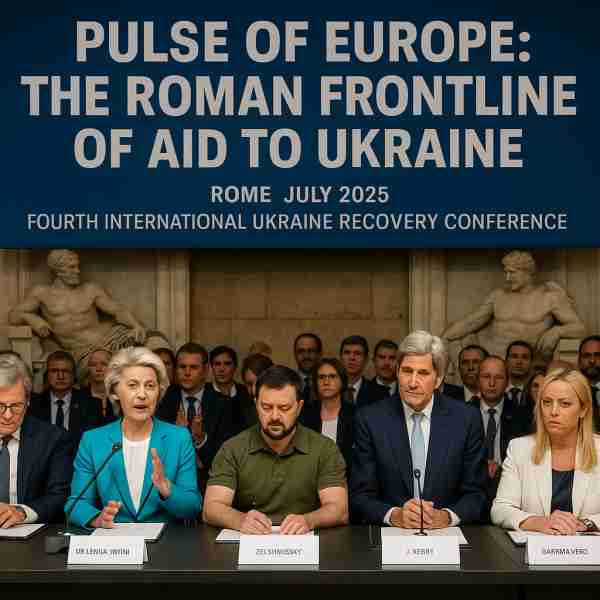The July sun over Rome in 2025 reflected brilliantly off the glass façades of the buildings where one of the most pivotal meetings for Ukraine was unfolding. In halls adorned with antique bas-reliefs and high ceilings, the names of war-torn cities echoed alongside plans for their recovery. The Fourth International Ukraine Recovery Conference was not merely a gathering of diplomats—it was an assembly of future architects, each with their own blueprints of hope. President Zelenskyy appeared tired but resolute. His speech was brief and devoid of pomp: "We are not begging for mercy. We are building a new state—with you." The hall erupted in applause. Ursula von der Leyen, the voice of Europe, announced €2.3 billion in aid. Giorgia Meloni, reserved but firm, stressed that Italy was not a bystander but an active participant. In adjacent rooms, under the atmosphere of closed-door talks, memoranda were born. Germany confirmed delivery of Patriot systems; the US reinstated logistics for HIMARS. Private sector negotiators, seated beside diplomats, felt for the first time not like sponsors, but co-authors of history. One Siemens executive said: "We’re not just building infrastructure. We’re building trust." The most unexpected moment came with the signing of the "Rome Memorandum"—a pledge by nations not just to support, but to oversee reforms and actively engage in Ukraine’s transformation from a post-Soviet model to a European one. At day's end, Zelenskyy held a short press conference. His eyes looked toward the future, his voice calm: "We will manage. Because we are no longer alone." And then it was clear: this wasn’t just a political summit—it was an act of collective trust. Rome, once a symbol of empires, on this day became a symbol of alliances.
Pulse of Europe: The Roman Frontline of Aid to Ukraine

Published : 11.07.2025
